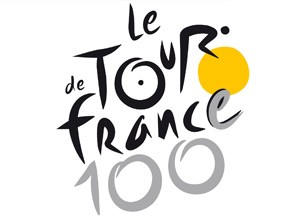No positive tests from this year’s Tour, retrospective tests may still be carried out
 The UCI’s Cycling Anti-Doping Foundation stated on Tuesday that the samples analysed at this year’s Tour de France have shown no signs of the use of banned substances.
The UCI’s Cycling Anti-Doping Foundation stated on Tuesday that the samples analysed at this year’s Tour de France have shown no signs of the use of banned substances.
The news is a provisional all clear for the race, although the CADF director Francesca Rossi warned that retrospective testing could yet be carried out at a later point, using new or more evolved testing methods.
A total of 622 samples were taken in the build-up to and over the course of the three week race, 56 more than last year’s Tour. Of those, 443 were blood samples and 179 were urine samples.
Of the in-competition blood tests, 198 were for the biological passport, eighteen were for human growth hormone analysis, two were for blood transfusions and 22 were ESA (erythropoiesis-stimulating agent) tests.
The urine tests were broken down into 14 standard in-competition assessments, 113 for EPO, 15 IRMS steroid tests and 37 for special analyses, including for insulin and desmopressin (a masking substance).
Laboratories then examined the samples for a variety of banned substances, with none triggering red flags. Rossi said the results were encouraging, but declined to say that they proved the race was clean.
She added that testers tried to be more unpredictable during this year’s race in order to prevent riders from taking measures to evade detection.
“This target testing strategy has been hugely facilitated by the excellent on-site cooperation between CADF and AFLD during the race,” said Dr Rossi, referring to the French national anti-doping agency, which worked on this year’s tour.
According to the UCI, the samples were then analysed by the WADA-accredited laboratories of Châtenay-Malabry (France), Lausanne (Switzerland) and Cologne (Germany). Along with the CADF, the UCI and AFLD have also agreed to keep the samples taken for possible retrospective testing in the future.
Current UCI President Pat McQuaid has said that he wants the UCI and the CADF to release more information about testing in the future. He has also said that the UCI wants to ensure the CADF is increasingly independent from the governing body.
His presidential rival, Brian Cookson, has said that if he is elected, he will ensure that a completely separate body will be set up to take over the policing of the sport.
While the UCI increasingly refers to the CADF as independent, Cookson has pointed out that it and the international federation share the same building, with Rossi’s office ‘down the corridor’ from that of McQuaid.
McQuaid has also acted as president of the CADF.
Both he and Rossi met the press today at a media open day at the World Cycling Centre in Aigle, Switzerland. The details of the Tour testing were presented there, as well as broader details about the UCI’s anti-doping policies.
The CADF had previously been faulted as releasing too little information and rarely giving interviews and updates. McQuaid has said that both aspects will change in the future.